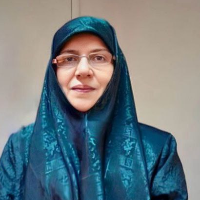If Avicenna Run Your Organization
Author(s):
Article Type:
Research/Original Article (دارای رتبه معتبر)
Abstract:
Today, there is no doubt that organizations are one of the most important social institutions that play a major role in the development of societies. Organizational role-playing in meeting the needs of communities is conditional on the existence of capable and effective managers. Although in the past, organizations did not exist like today, but even in the old social complexes and institutions, the role of individual as manager or leaders who could draw the roadmap and establish justice among the people of the society was an undeniable necessity. Among the Islamic philosophers, Avicenna has pointed out in his numerous works to the importance of community and participation of individuals to achieve goals such as the happiness and well-being of all members of society, as well as the necessity for just and managerial person to lead and manage of people. Since, he always sought to integrate Greek and Islamic thought, many of his thoughts on topics such as the need for an organizational institution, how to manage the organization, the characteristics of wise leader and manager, and such issues are in line with the theories of Western philosophers such as Plato. In this study, we by collecting data through the library method, we intend to point out some of the theories and ideas of Western philosophers about the need for an ethical manager and leader, as well as how to manage organizations wisely, analyze Avicenna's views in this regard. This research is an interdisciplinary study in the field of applied philosophy.
Keywords:
Language:
Persian
Published:
Avicennian Philosophy, Volume:25 Issue: 66, 2022
Pages:
223 to 242
https://magiran.com/p2456512
مقالات دیگری از این نویسنده (گان)
-
The Wisdom of Life from Ghazali and Schopenhauer’s Points of View
Elahe Rostami*, Foruzan Rasekhi, Narges Nazarnejad
Metaphysical Investigations, -
Enhancing Resilience Based on Teachings of Stoics and Rumi
Narges Nazarnejad, Zeinab Mirzapour *, Forouzan Rasekhi
Ayeneh Marefat,


